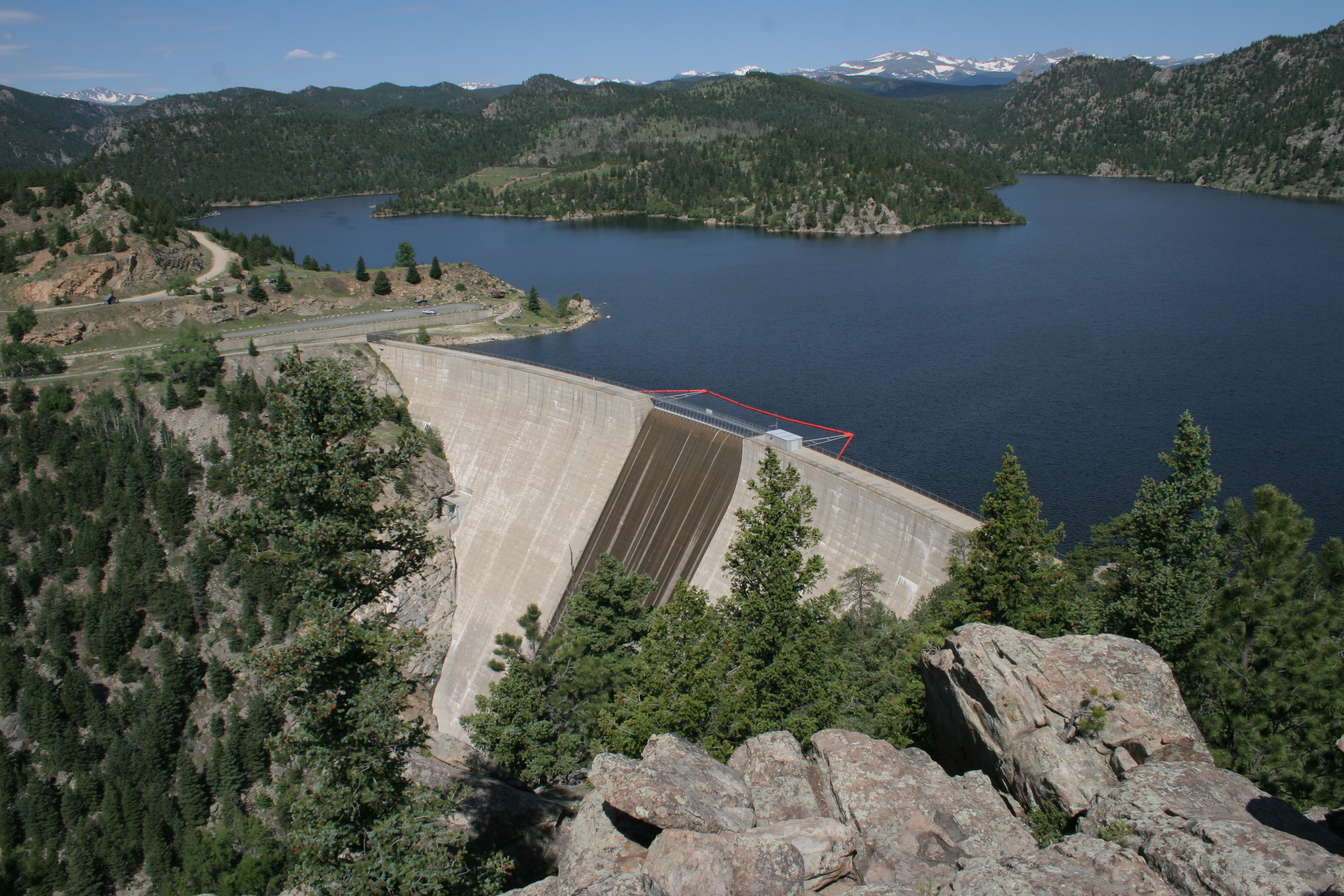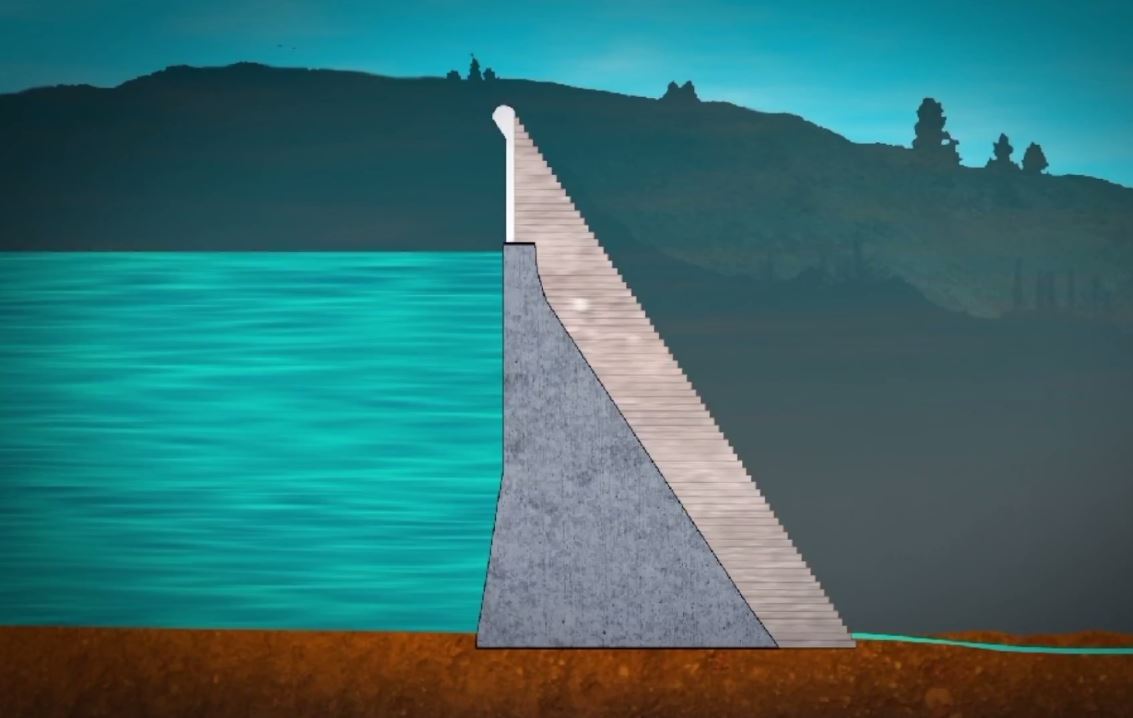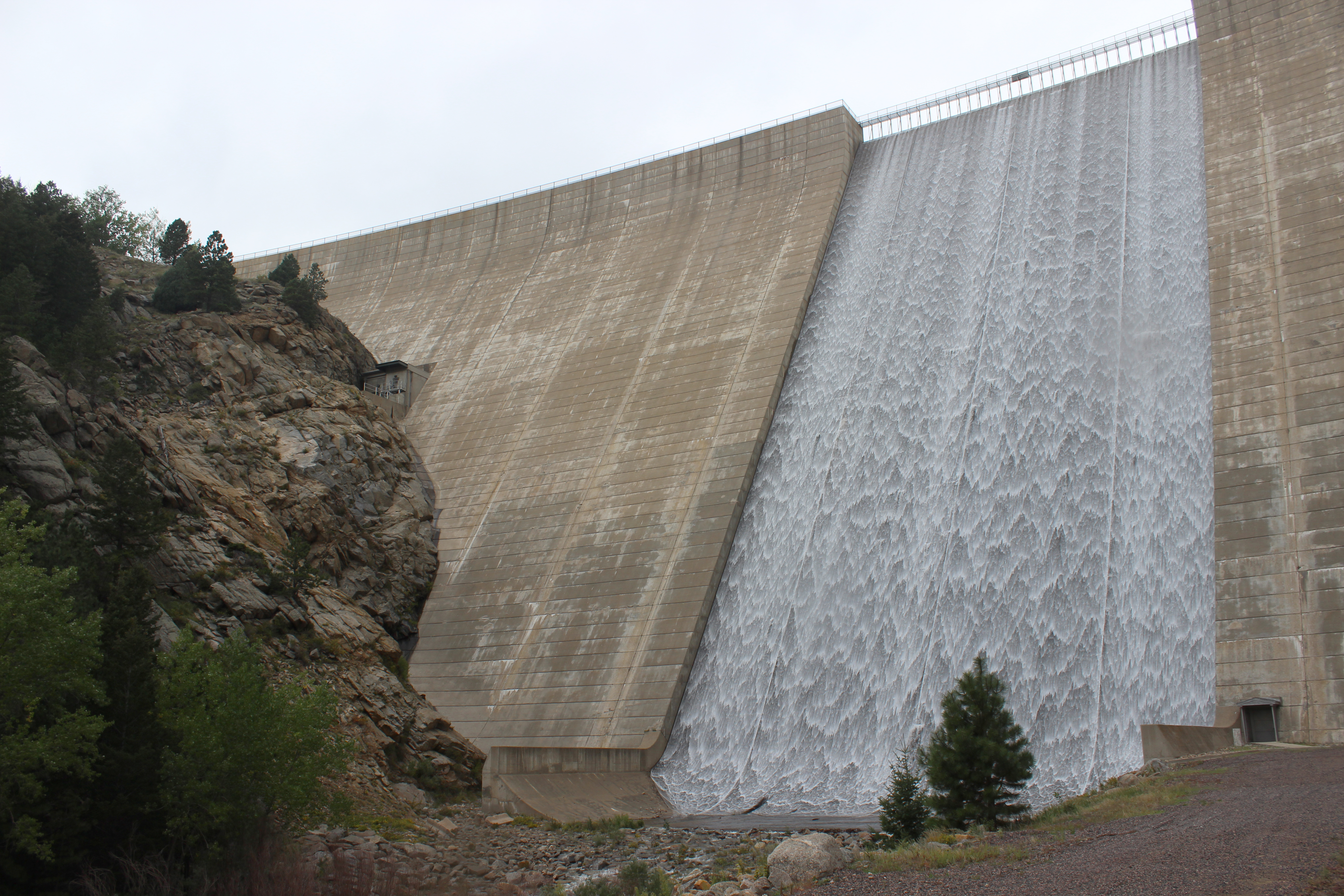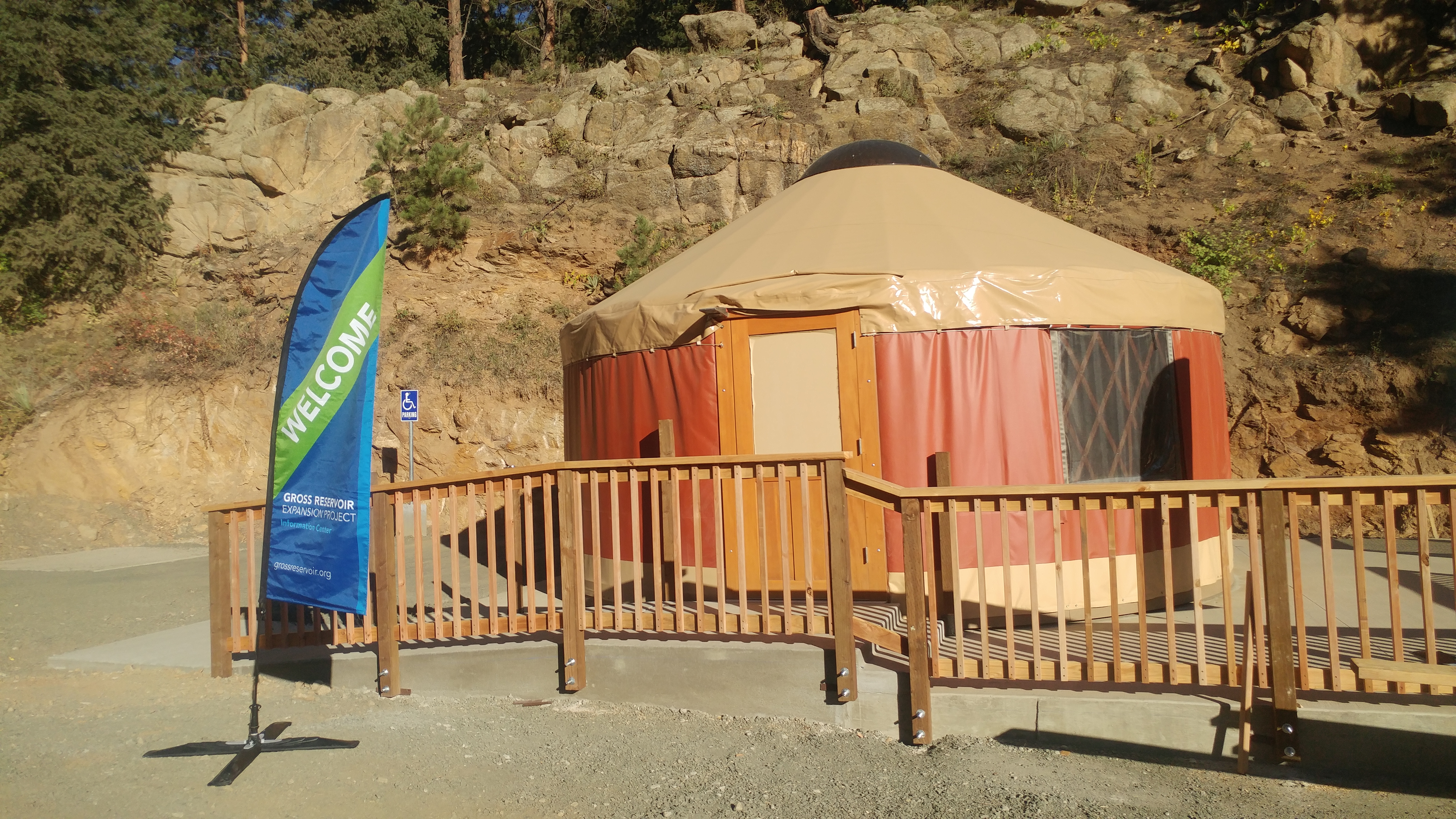
Gross Reservoir Expansion Project hits new milestone
Denver Water has hit another milestone in its Gross Reservoir Expansion Project with the hiring of Kiewit Barnard, a Joint Venture, for planning and pre-construction work.
Denver Water’s five-member Board of Water Commissioners approved a two-year, $4.5 million contract with Kiewit Barnard in mid-July.
“This is a major milestone in our 16-year effort to expand Gross Reservoir, as its original designers intended decades ago, to ensure a more reliable water supply in a future marked by greater uncertainty in weather patterns,” Denver Water CEO/Manager Jim Lochhead said of the vote.
The expansion project will raise the height of the existing Gross Reservoir dam, completed in 1954, by 131 feet, allowing the reservoir to nearly triple in size. The higher dam will expand the capacity of the reservoir in Boulder County by 77,000 acre-feet.
Denver Water plans for the expansion project include addressing concerns about traffic, noise and other issues raised by neighbors who live near the reservoir.
When the $464 million project is complete, the reservoir will be capable of holding a total of about 119,000 acre-feet of water, providing Denver Water greater system balance between its north and south sections as well as resiliency to the entire system.
If the team’s performance during the planning and pre-construction phase meets Denver Water’s expectations, a separate contract to build the dam may be signed between Denver Water and Kiewit Barnard.
The joint venture team will act as a construction manager/general contractor for the project, a role that will increase the opportunity for innovation in the design phase and greater certainty on costs.
“They’re coming in when we have about 30% of the project design done, rather than waiting until the designs are complete,” said Jeff Martin, Denver Water’s program manager for the expansion project.
“Having a construction manager/general contractor working on the project earlier, during the design phase, allows them to give us valuable feedback before construction starts. And they’re going to be estimating the cost of building the project as we go along, which will give Denver Water a better understanding of cost and risk as we progress the design,” he said.
The process to select a construction manager/general contractor for the expansion project began in August 2018 with information meetings, followed by a formal Request for Qualifications in October 2018.
Three teams responded to the request and underwent extensive evaluations and interviews by a selection team that included experts from Denver Water, the project’s design engineer and subject matter experts. The selection team focused on a value-based competitive process that examined each team’s qualifications, project approach, technical approach and cost.
“Kiewit Barnard met Denver Water’s high bar for doing a project that’s important not only to the 1.4 million people who rely on us for their drinking water, but also to the people who live around the reservoir,” Martin said.
“We were impressed by the team’s experience with roller-compacted, concrete dam construction, innovative approach and commitment to safe and responsible building practices,” Martin said.
The project calls for adding 900,000 cubic feet of concrete to the existing structure and building the first roller-compacted concrete, arch dam in the United States. When complete, the Gross Dam will be the tallest in Colorado and the tallest roller-compacted concrete dam in the U.S.
“Kiewit Barnard, a Joint Venture, is very pleased to have been selected to work on this important project to support water demand for the greater Denver area,” said Jamie Wisenbaker, senior vice president of Kiewit Infrastructure Co., and an executive sponsor of the project. “We believe the team’s collective infrastructure experience in dam and reservoir construction and engineering will be a huge asset and look forward to safely delivering a high-quality project on time for Denver Water and the region.”
Kiewit is one of North America’s largest construction and engineering organizations with extensive heavy-civil experience in water/wastewater construction, including serving as lead contractor on the Oroville Spillways Emergency Recovery project in California.
Kiewit is the No. 1 contractor for dams and reservoirs in the United States according to Engineering News-Record. The company also has strong roots and experience in Denver and across Colorado, including having constructed the Interstate 25 T-REX Expansion project, the U.S. 34 Big Thompson Canyon emergency repair project and the I-225 Light Rail Line project. The company also is building Denver Water’s new Northwater Treatment Plant.
Barnard Construction Co. Inc. brings a long track record of safety and quality on infrastructure projects in the U.S., including construction on more than 80 dams, reservoirs and dikes over the last four decades.
The company’s work in this area includes new construction, raising dams and conducting emergency repairs. In 2019, Barnard was honored as a “Global Best Project” award winner by Engineering News-Record in the dam/environment category for the Muskrat Falls North and South Dams project located in Muskrat Falls, Newfoundland and Labrador, Canada.
The Gross Reservoir expansion is awaiting a final federal government approval from the Federal Energy Regulatory Commission. Provided the remaining federal approvals come by the end of this year, the project is slated to be complete in 2025.
When finished, the expanded reservoir and associated mitigation projects will create what the Colorado Department of Public Health and Environment has described as a net environmental benefit to state water quality by generating a wide range of environmental improvements to streams, river flows and aquatic habitats.




